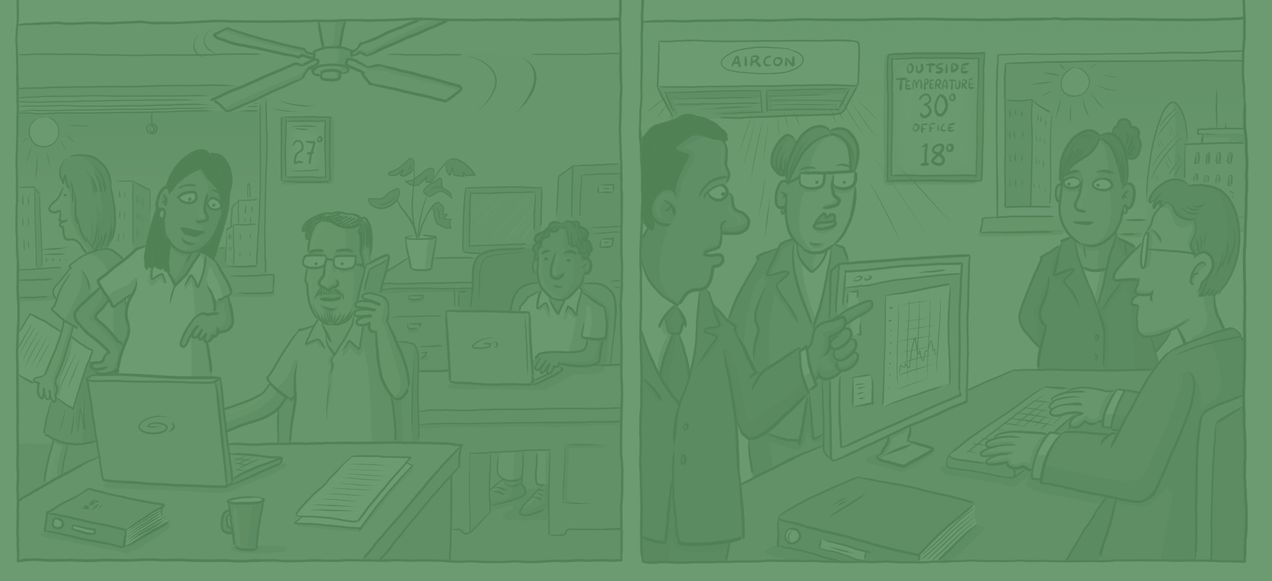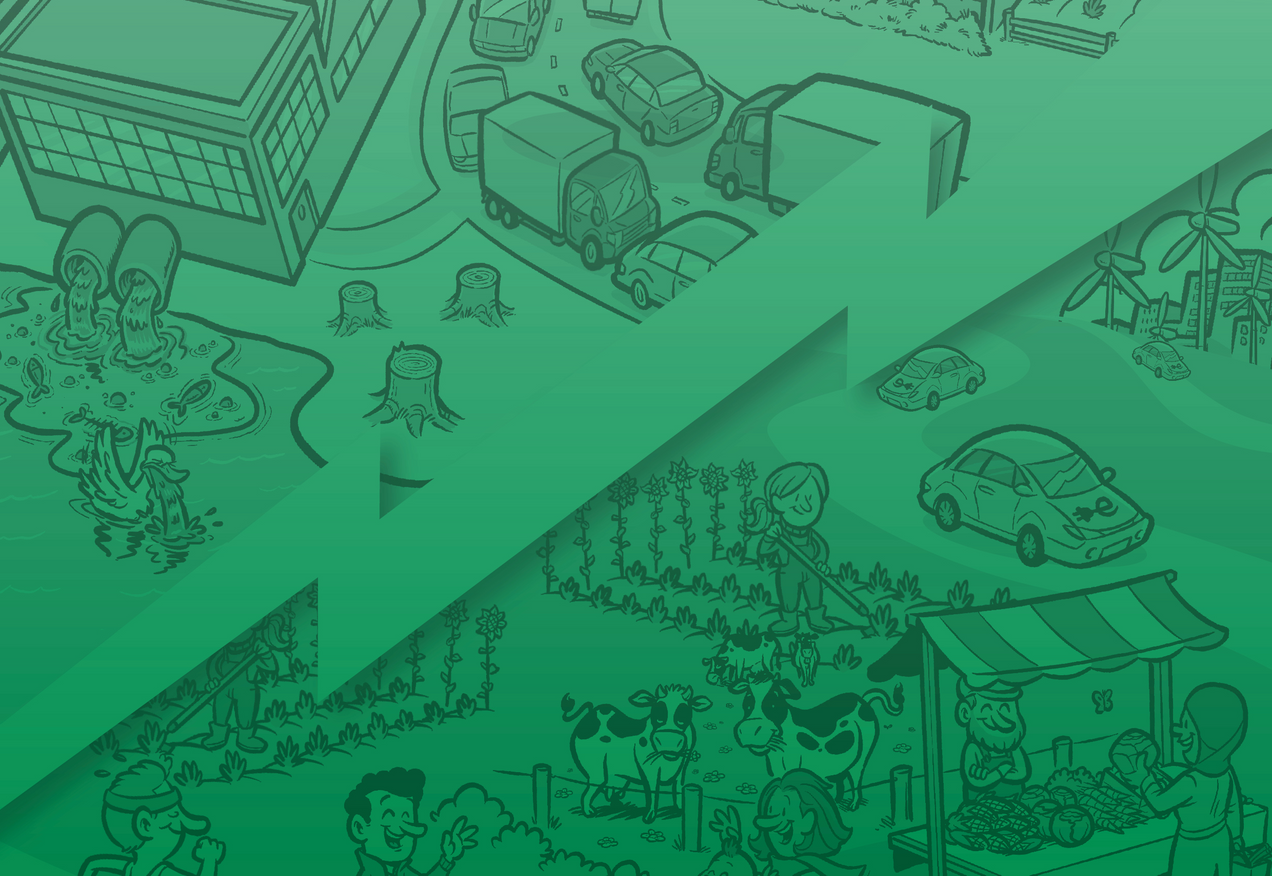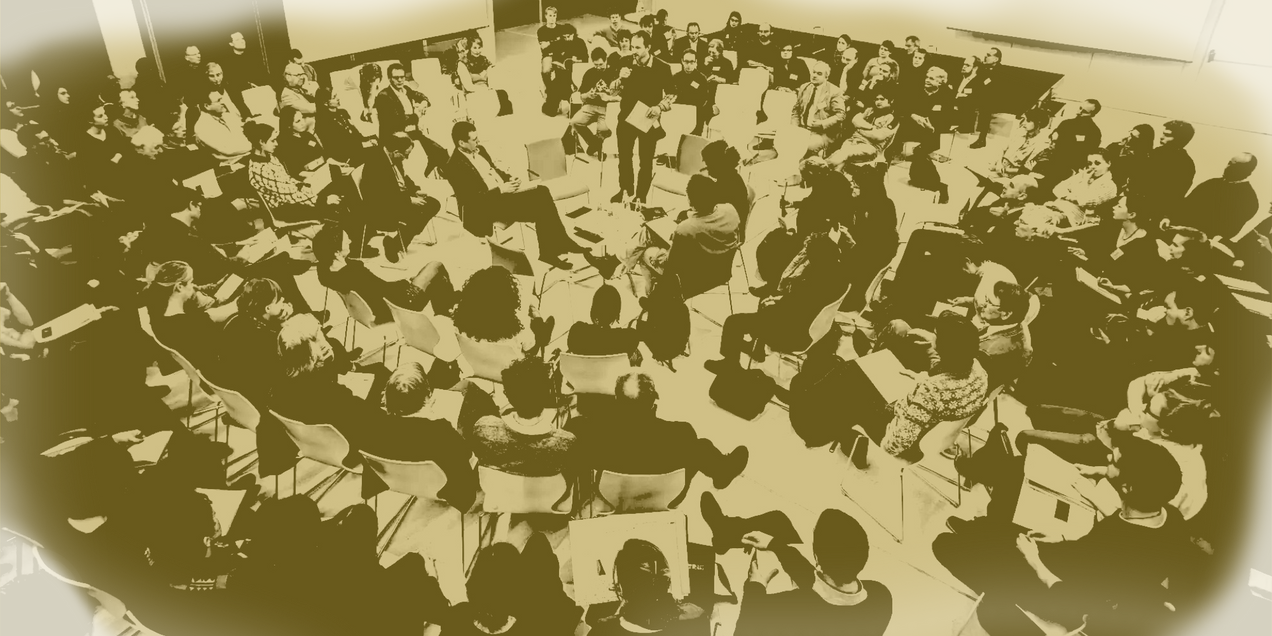Climate Emergency Economy Project
What would an economy that faced up to the reality of the climate emergency look like? To truly meet the challenge, the UK must rethink our industrial and economic dependency on materials and products sourced from around the world.
Over three years from 2019-2022, Green House is exploring how trade, industry and infrastructure need to change to meet zero carbon goals. In 2022 this project is organised by the Green European Foundation with the support of Green House Think Tank, Green Foundation Ireland, and Etopia, and with the financial support of the European Parliament to the Green European Foundation. In 2022 the project is focused on 'Rethinking Demand'.
At the bottm of this page you can find all the reports and events that make up this project. These build on our recent work envisioning a postgrowth Britain and our focus on climate jobs, which quantified the employment that could be created across the UK in facing up to the climate emergency. Read the strategic vision
Latest Report:
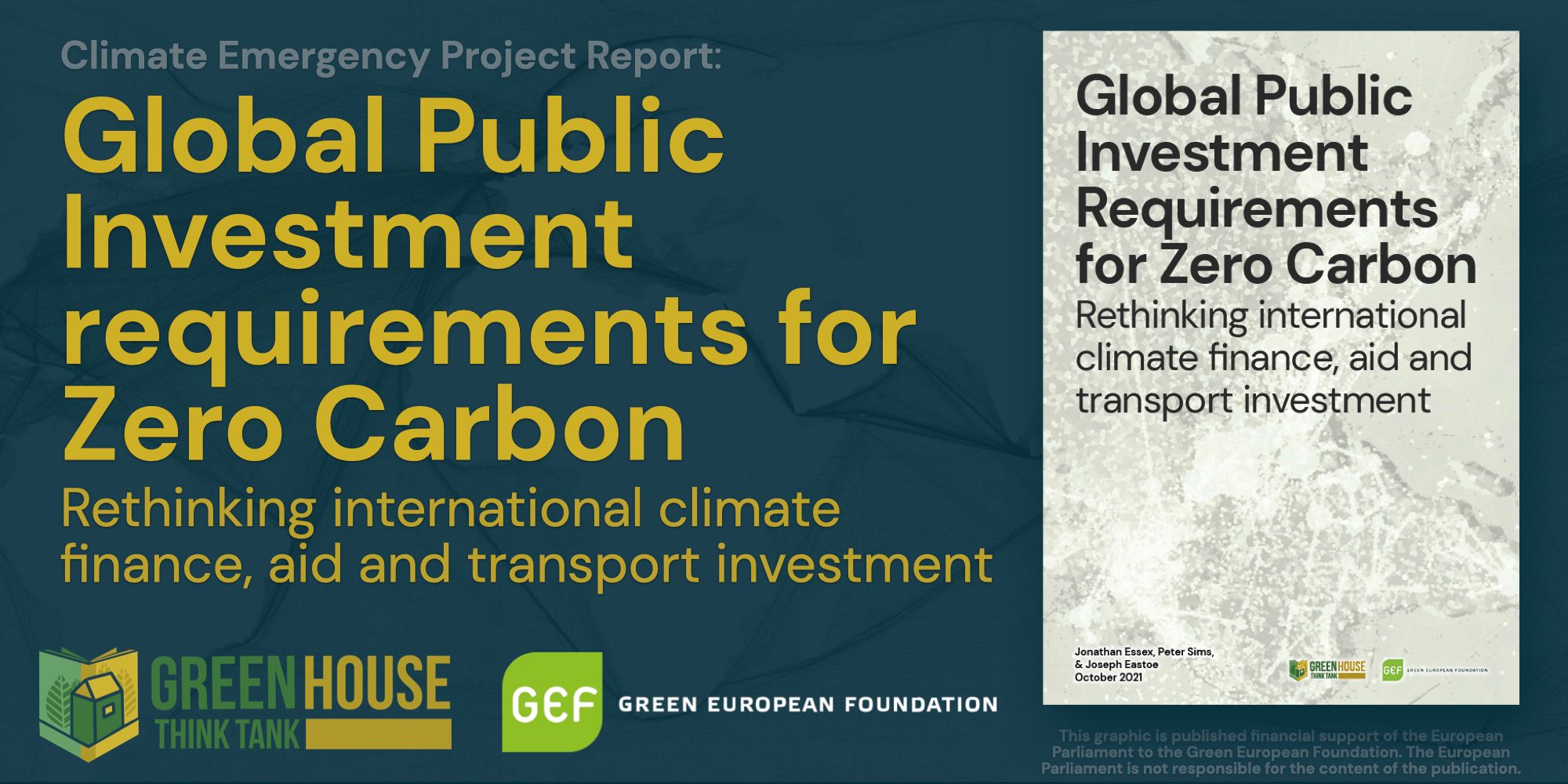
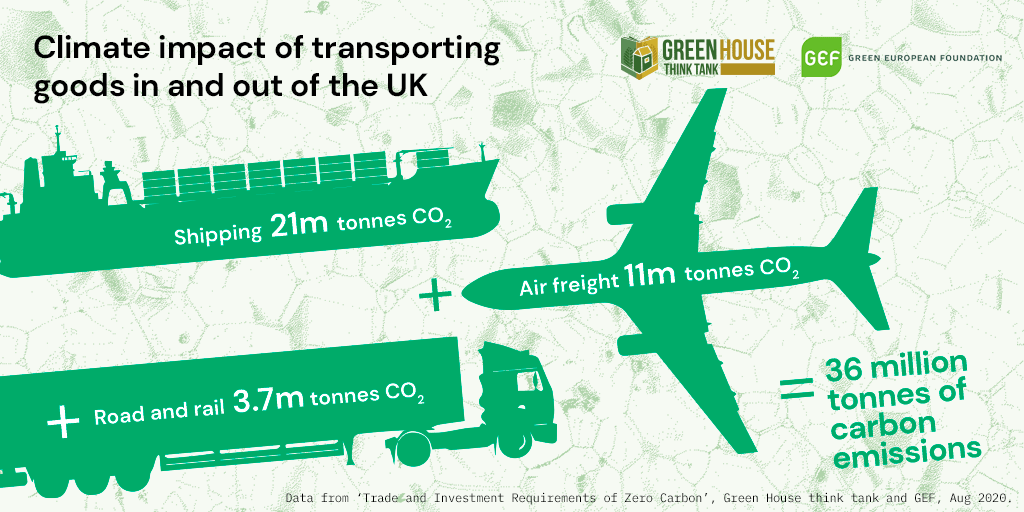
This report quantifies the massive scale of transport infrastructure investment plans across the UK and EU and how this fails to align to existing climate targets. This highlights that whilst heavy goods transport, shipping and aviation are some of the hardest to decarbonise, demand for these transport modes are not being managed or constrained in line with climate commitments. The report is framed using the Zero Carbon Policy Toolkit introduced in Green House’s August 2020 report, Trade and Investment Requirements for Zero Carbon. Other key reports in this project include:
- Infrastructure Requirements for Zero Carbon
- The Social and Environmental Requirements of a Climate Emergency Economy
- Transport Investment: The Zero Carbon Challenge
Project Video
Zero Carbon Policy Toolkit
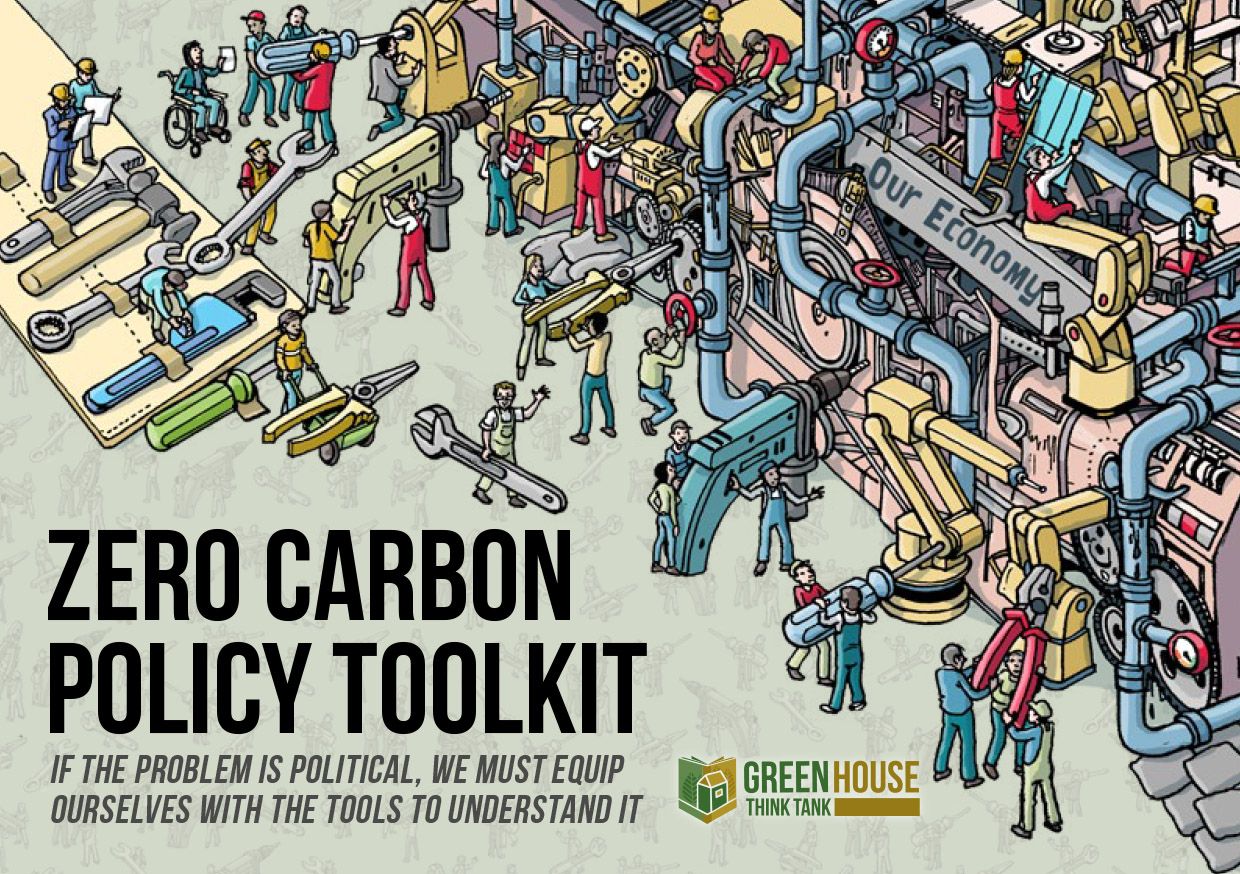
Related Publications


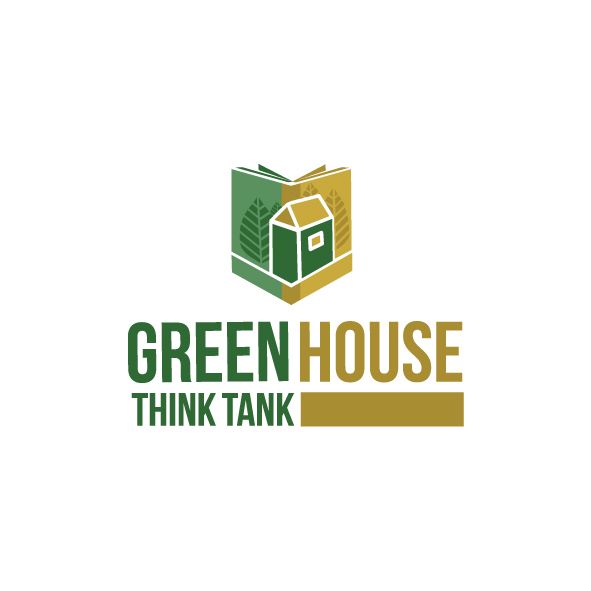

Project Publications & Events
You Never Give Me Your Money
The COP29 conference is floundering with the usual tussle between the Global South asking for financial support to green their energy systems and the Global North pleading poverty. This article looks at some radical solutions for this impasse.
Climate Emergency: Economics, Politics, Honesty
This Framing Paper by Jonathan Essex on behalf of Green House Think Tank outlines areas of focus for our forthcoming project. Green House is grappling with what this all means in practice and welcomes contributions and collaboration.
Presentation: Why do green jobs plan need a different politics and economics?
Jonathan Essex speaks at the Greener Jobs Alliance AGM about why green jobs plans need different politics and economics.
Event: The Geopolitics of Degrowth
Join us in London or online on 17th Oct 2023 for another informative debate in our ongoing exploration of the geopolitics of a post-growth Europe!
Is the Green Book fit for purpose in a climate emergency?
Recommendations from a round table discussion which took place in Autumn 2022. The Green Book, is produced by HM Treasury (HMT), and sets out how to assess public sector projects or policy interventions to ensure that projects give value for money.
Heating and Cooling of Buildings
This Policy Briefing applies recommendations of the Rethinking Energy Demand framing report to the heating and cooling of buildings. It outlines the current context, the need to reduce the number of buildings heated and the amount of heating and cooling needed within them.
Rethinking Energy Demand
Framing Report published in collaboration with Green European Foundation - If industrialised European societies are to reach zero carbon on a timescale compatible with limiting climate change, they must significantly reduce their energy demand. This will disrupt business-as-usual.
Reality and Opportunity - Events October 2022
Join Rethinking Demand Project Events in Dublin, Belfast and online across Europe. These events are collaboration between the Green European Foundation, Green House Think Tank (UK), Green Foundation Ireland, and Etopia (Belgium).
Rethinking Demand
Project Launch. The Climate Emergency Economy project in 2022 will focusing on rethinking demand for energy and materials.
Finance-based transition solutions: approach with caution
Andrew presents the fundamental criticisms made by economists Clive Spash and Frédéric Hache of the influential Dasgupta Review of the economics of biodiversity. Whether or not these criticisms are persuasive, their review points to significant dangers lurking in the financialisation of Nature.
Beyond Consumerism Conference
Green House Think Tank involvement in upcoming 'Beyond Consumerism Conference' on 14th May.
Things Hidden Since the Foundation of the World: the implications of René Girard’s thought for consumer society.
Max Familioe considers the work of René Girard on desire, and it's relevant to Rethinking Demand and Facing up to Climate Relativity.
Nuclear Power and the contradictions of the UK’s Energy Security Strategy
UK's Energy Security Strategy backs nuclear over greater renewables and energy efficiency. It risks increasing prices and failing to meet future electricity demand. The tools used to make nuclear investor friendly should be used for energy efficiency instead.
Mineral extraction and the world’s self-deception
Regulation is essential to ensure global mineral extraction is politically and environmentally sustainable.. It This report argues that the only way to reduce the damage caused by mineral extraction is stronger regulation.
Climate Reality – Facing Up or COPping Out?
Did COP26 face up to climate reality? We apply some tough tests to its outcomes, and think about the hard challenges ahead. Join Rupert Read, Elsie Luna and John Foster for a searching assessment from three different perspectives, followed by a lively discussion.







